Adding a patio can transform how you use your backyard. It creates space for dining, relaxing, and entertaining while opening the door to creative hardscape and landscape design ideas that elevate the entire outdoor area. Once you decide to build one, another question quickly follows. Should you tackle the project yourself or hire a professional? Both options have advantages. Both carry risks. The right choice depends on your budget, skill level, timeline, and long-term goals. Understanding what each path involves helps you move forward with confidence rather than guesswork.
The Scope of the Project

A patio may look simple from the surface. It is often just concrete, pavers, or stone arranged in a clean layout. However, the work beneath matters most. Proper excavation, grading, and base preparation determine how well the patio performs over time. DIY projects typically involve clearing the area, leveling soil, adding a compacted base, and placing the surface material. This requires tools, physical effort, and attention to detail. Mistakes in grading can cause drainage problems. Poor compaction may lead to shifting or cracking. Professional installers bring experience. They understand soil conditions and local climate factors. They know how to ensure water flows away from the home’s foundation. Their expertise reduces the likelihood of structural issues later. The scope of work is often larger than homeowners first expect.
Cost Evaluation Beyond Materials
At first glance, DIY appears more affordable. You save on labor, which can represent a significant portion of the total cost. You control material selection and timing. For smaller patios, this approach can make financial sense. However, expenses extend beyond pavers or concrete. Tool rentals, equipment delivery, and waste disposal add up. If mistakes occur, repairs may cost more than hiring a contractor from the beginning. Professional installation involves a higher upfront payment. Labor and overhead are included in the estimate. Yet the price reflects efficiency and experience. A contractor completes the job faster and often with fewer setbacks. In some cases, investing in professional work protects long-term value and reduces the risk of costly corrections.
Time Commitment and Physical Demands
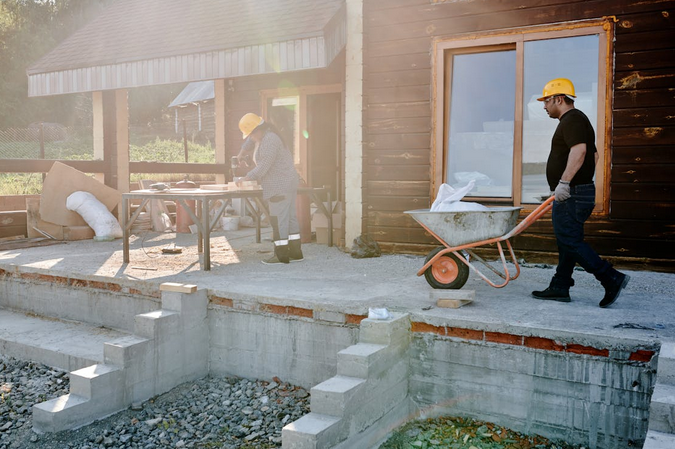
Building a patio is labor-intensive. Digging, hauling materials, and compacting base layers require strength and endurance. Even small patios can take several weekends for a homeowner to complete. Weather delays complicate the schedule. Professionals work in coordinated teams. What might take a homeowner several weeks can often be finished in a few days. They also handle permits when required, which saves time and stress. Consider your availability. If you enjoy hands-on projects and have flexible time, DIY may feel rewarding. If your schedule is tight, professional installation offers efficiency and predictability. The value of your time should factor into the decision.
Quality, Durability, and Long-Term Results
Durability matters. A patio should withstand foot traffic, weather changes, and seasonal shifts. Improper base preparation leads to uneven surfaces. Water infiltration can weaken materials over time. Professionals follow established processes. They use commercial-grade equipment to compact soil properly. They measure slopes carefully to ensure effective drainage. These steps help ensure structural stability for years. DIY patios can succeed when homeowners research thoroughly and follow best practices. Yet the margin for error is narrow. Even small miscalculations affect performance. If resale value is important, professional workmanship may offer reassurance to future buyers.
Design Complexity and Custom Features

Simple square patios are manageable for skilled homeowners. Straight lines and standard pavers reduce complications. As design becomes more complex, the difficulty increases. Curved edges, built-in seating, fire pits, and integrated lighting require precision. These features often demand advanced tools and technical knowledge. Electrical components must meet safety codes. Drainage systems may need adjustment. Professionals can translate ideas into practical designs. They assess load-bearing requirements and structural support. Their experience allows them to execute detailed layouts with accuracy. For homeowners seeking a truly unique outdoor space, professional guidance often delivers stronger results.
Risk Management and Warranty Protection
Every construction project carries risk. Underground utilities, unstable soil, and unexpected weather can complicate work. DIY builders assume full responsibility for these challenges. Injuries or property damage become personal liabilities. Licensed contractors carry insurance. They operate under local regulations. Many offer warranties on workmanship. This protection provides peace of mind. Mistakes in patio construction can affect adjacent structures. Poor drainage may impact the home’s foundation. Incorrect installation may lead to cracking or shifting within months. Professional oversight reduces these risks and supports long-term reliability.
Choosing between DIY and professional installation requires an honest evaluation. Assess your skill level realistically. Consider your budget beyond initial savings. Think about how much time you can commit. Weigh the importance of durability and resale value. DIY projects offer satisfaction and control. They can work well for straightforward designs and homeowners who are comfortable with physical labor. Professional installation offers efficiency, expertise, and structural confidence. It minimizes risk and …

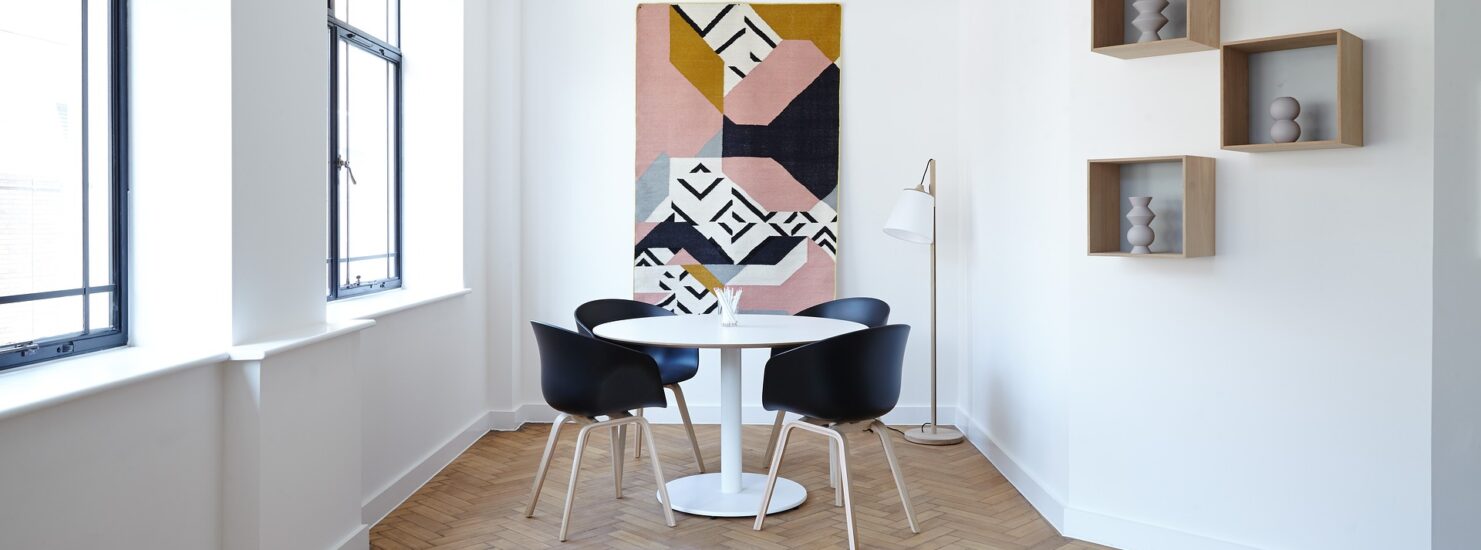

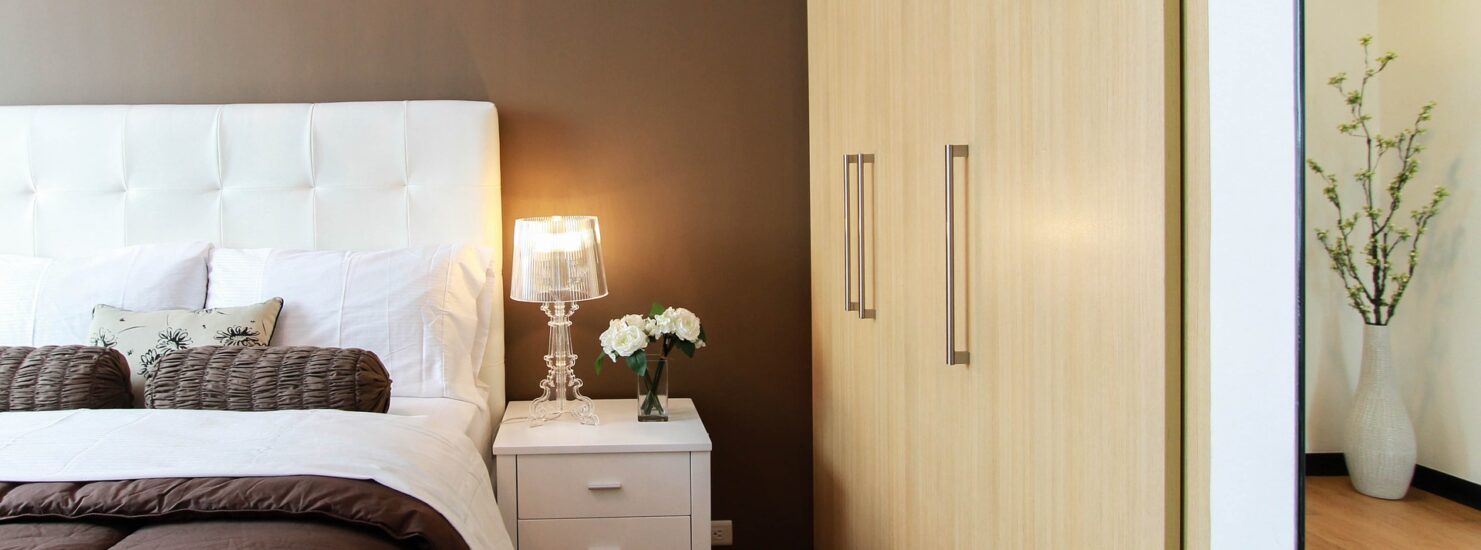










 One of the biggest challenges in an open concept space? Figuring out where one area ends and another begins. A well-placed corner sofa acts like a soft, stylish barrier. It doesn’t need walls or dividers to mark off the living room from the dining area or kitchen. It just sits there doing its job, quietly separating space while looking good doing it. Push the back of the sofa toward the dining table or the kitchen island, and you’ve got an instant boundary. No drywall required.
One of the biggest challenges in an open concept space? Figuring out where one area ends and another begins. A well-placed corner sofa acts like a soft, stylish barrier. It doesn’t need walls or dividers to mark off the living room from the dining area or kitchen. It just sits there doing its job, quietly separating space while looking good doing it. Push the back of the sofa toward the dining table or the kitchen island, and you’ve got an instant boundary. No drywall required.












 Outdated lighting fixtures, especially those using incandescent bulbs, can contribute significantly to high energy bills. If you’re still using older, energy-draining lighting technologies, it’s time to make the switch to energy-efficient options. LED and CFL (compact fluorescent) bulbs are not only more energy-efficient but also last longer, reducing the frequency of replacements. Additionally, installing dimmer switches allows you to customize the brightness level according to your needs, further optimizing energy usage.
Outdated lighting fixtures, especially those using incandescent bulbs, can contribute significantly to high energy bills. If you’re still using older, energy-draining lighting technologies, it’s time to make the switch to energy-efficient options. LED and CFL (compact fluorescent) bulbs are not only more energy-efficient but also last longer, reducing the frequency of replacements. Additionally, installing dimmer switches allows you to customize the brightness level according to your needs, further optimizing energy usage. This design concept embraces a seamless flow between spaces, creating an airy and spacious feel throughout your living area. With an open floor plan, you can say goodbye to walls that divide your kitchen from the dining room or the living room from the office space. Instead, you’re left with one large, multifunctional zone that encourages interaction and connectivity.
This design concept embraces a seamless flow between spaces, creating an airy and spacious feel throughout your living area. With an open floor plan, you can say goodbye to walls that divide your kitchen from the dining room or the living room from the office space. Instead, you’re left with one large, multifunctional zone that encourages interaction and connectivity. But why these doors? These types of doors offer a sleek and modern solution that can help save valuable square footage in small homes or apartments. Sliding doors are such a remarkable option for dividing open floor plans, allowing you to create separate spaces when needed while still maintaining an open and airy feel.
But why these doors? These types of doors offer a sleek and modern solution that can help save valuable square footage in small homes or apartments. Sliding doors are such a remarkable option for dividing open floor plans, allowing you to create separate spaces when needed while still maintaining an open and airy feel.
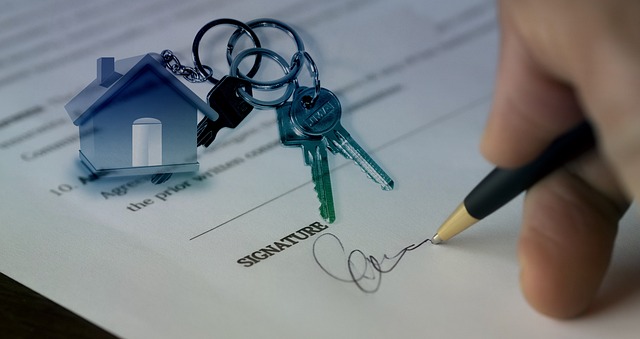




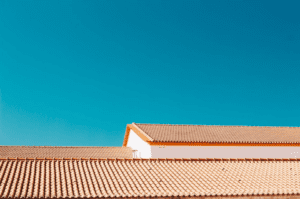 With the foundation in place, it’s time to start framing your wooden house. This involves building the frame of the house using wooden beams and joists. Once the structure is complete, it’s time to install the roof. The roof is another critical element of your wooden house, as it protects from the elements and helps maintain the home’s structural integrity.
With the foundation in place, it’s time to start framing your wooden house. This involves building the frame of the house using wooden beams and joists. Once the structure is complete, it’s time to install the roof. The roof is another critical element of your wooden house, as it protects from the elements and helps maintain the home’s structural integrity. With the major systems in place, it’s time to focus on your wooden house’s interior and exterior finishing. This includes installing insulation, drywall, and flooring and finishing the house’s exterior with siding, paint, or other materials.
With the major systems in place, it’s time to focus on your wooden house’s interior and exterior finishing. This includes installing insulation, drywall, and flooring and finishing the house’s exterior with siding, paint, or other materials. Automation software and internet-based solutions can help you manage a home business with ease and without breaking the bank. For example, time management software can automate repetitive tasks, appointment reminders, and even customer follow-ups. This way, you can focus on other aspects of running your business without having to worry about the little things.
Automation software and internet-based solutions can help you manage a home business with ease and without breaking the bank. For example, time management software can automate repetitive tasks, appointment reminders, and even customer follow-ups. This way, you can focus on other aspects of running your business without having to worry about the little things. It’s not that hard if you think about it, and there are plenty of resources to help you get started. Automation software, online tools, and a dedicated workspace are key to making a home business work for you. And finally, don’t forget to set office hours so that you can stay focused and on task.
It’s not that hard if you think about it, and there are plenty of resources to help you get started. Automation software, online tools, and a dedicated workspace are key to making a home business work for you. And finally, don’t forget to set office hours so that you can stay focused and on task. One of the most popular ways to install a hot tub is by sinking it into the decking. It gives the illusion that the hot tub is built-in and saves you a lot of space. Not to mention, it looks fantastic. If you’re going to sink your hot tub into the decking, make sure that you use a material that can withstand the weight and heat of the tub. We recommend using concrete, stone, or brick. Another advantage of sinking your hot tub into the deck is that it becomes more stable. It’s less likely to tip over or move around when using it.
One of the most popular ways to install a hot tub is by sinking it into the decking. It gives the illusion that the hot tub is built-in and saves you a lot of space. Not to mention, it looks fantastic. If you’re going to sink your hot tub into the decking, make sure that you use a material that can withstand the weight and heat of the tub. We recommend using concrete, stone, or brick. Another advantage of sinking your hot tub into the deck is that it becomes more stable. It’s less likely to tip over or move around when using it. The different types of tiles that you can use for your hot tub are endless. But if you’re looking to create a truly relaxing experience, we recommend going with Moorish-inspired tiles. These tiles are usually made of ceramic or glass and have intricate patterns. They’re beautiful, making your hot tub look like a million bucks. Moreover, they’re also slip-resistant, which is always a bonus.
The different types of tiles that you can use for your hot tub are endless. But if you’re looking to create a truly relaxing experience, we recommend going with Moorish-inspired tiles. These tiles are usually made of ceramic or glass and have intricate patterns. They’re beautiful, making your hot tub look like a million bucks. Moreover, they’re also slip-resistant, which is always a bonus. One of the most common mistakes people make when applying epoxy is not preparing the surface correctly. If you don’t remove all of the dirt, grease, and other contaminants from the surface, they will be trapped under the epoxy and will eventually cause it to fail. Many people try to save time by skipping this step, but it’s essential to the success of your project.
One of the most common mistakes people make when applying epoxy is not preparing the surface correctly. If you don’t remove all of the dirt, grease, and other contaminants from the surface, they will be trapped under the epoxy and will eventually cause it to fail. Many people try to save time by skipping this step, but it’s essential to the success of your project. The last mistake people make is not mixing the epoxy properly. If you don’t mix it correctly, it will not adhere to the surface correctly and will eventually start to peel up. Make sure to follow the instructions on the epoxy kit and mix it thoroughly before you start to apply it. When applying it, you need to make sure that you are doing it in an even layer.
The last mistake people make is not mixing the epoxy properly. If you don’t mix it correctly, it will not adhere to the surface correctly and will eventually start to peel up. Make sure to follow the instructions on the epoxy kit and mix it thoroughly before you start to apply it. When applying it, you need to make sure that you are doing it in an even layer. One of the essential aspects of properly installing a new door is setting up the hardware beforehand. This includes setting up the hinges, locks, and other hardware needed to install the door. Doing this ahead of time can avoid any last-minute problems that could occur during the installation process. Additionally, setting up the hardware beforehand will allow you to test it out and ensure that everything fits correctly.
One of the essential aspects of properly installing a new door is setting up the hardware beforehand. This includes setting up the hinges, locks, and other hardware needed to install the door. Doing this ahead of time can avoid any last-minute problems that could occur during the installation process. Additionally, setting up the hardware beforehand will allow you to test it out and ensure that everything fits correctly.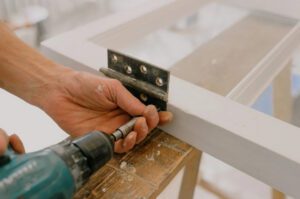 If you want a proper door installation, ensure you have the handy tools and suitable materials. It includes a drill, screwdriver, level, tape measure, and saw. Additionally, you will need to ensure that you have the correct type of screws, nails, or other fasteners for your particular door. A level and shim will also be necessary to ensure that your door is installed correctly. By having all of the proper tools and materials, you can avoid any problems that could occur during the installation process.
If you want a proper door installation, ensure you have the handy tools and suitable materials. It includes a drill, screwdriver, level, tape measure, and saw. Additionally, you will need to ensure that you have the correct type of screws, nails, or other fasteners for your particular door. A level and shim will also be necessary to ensure that your door is installed correctly. By having all of the proper tools and materials, you can avoid any problems that could occur during the installation process. Another important tip for proper door installation is to mark the placement of the door before beginning the installation process. This will help you avoid any mistakes during installation and ensure that the door is properly aligned. Also, marking the door’s placement will help you determine the best location for the door hardware. At this moment, you also need to mind the door gap. The door gap is the space between the door and the frame. This gap should be even on all sides of the door.
Another important tip for proper door installation is to mark the placement of the door before beginning the installation process. This will help you avoid any mistakes during installation and ensure that the door is properly aligned. Also, marking the door’s placement will help you determine the best location for the door hardware. At this moment, you also need to mind the door gap. The door gap is the space between the door and the frame. This gap should be even on all sides of the door. The other type of website is the real estate marketplace website. These are websites like Zillow, Redfin, and Trulia. They allow you to search for homes in your area and compare prices. You can also find information on schools, crime rates, and other important factors. These websites are a great resource if you are looking for a new home. You can search by location, price, and other factors. You can also find home reviews and see what others have said about them. If you want to buy a home, these websites can be a great resource. You can find homes for sale in your area and compare prices.
The other type of website is the real estate marketplace website. These are websites like Zillow, Redfin, and Trulia. They allow you to search for homes in your area and compare prices. You can also find information on schools, crime rates, and other important factors. These websites are a great resource if you are looking for a new home. You can search by location, price, and other factors. You can also find home reviews and see what others have said about them. If you want to buy a home, these websites can be a great resource. You can find homes for sale in your area and compare prices. The most popular type of real estate website is the real estate investing website. These websites are designed to help people find and invest in properties. They usually have a lot of information about different types of investments and often have tools that investors can use to find properties.
The most popular type of real estate website is the real estate investing website. These websites are designed to help people find and invest in properties. They usually have a lot of information about different types of investments and often have tools that investors can use to find properties. Your tenants are your number one priority, and you want to do everything in your power to keep them safe. A security system is a great way to do that. It can help deter break-ins and burglaries, and it will give your tenants peace of mind knowing that they’re protected. In addition to protecting your tenants, a security system can also help protect your property.
Your tenants are your number one priority, and you want to do everything in your power to keep them safe. A security system is a great way to do that. It can help deter break-ins and burglaries, and it will give your tenants peace of mind knowing that they’re protected. In addition to protecting your tenants, a security system can also help protect your property.
 The best way to make sure your baby’s room looks cohesive and put together is to stick to a color scheme. It doesn’t mean that you have to use all white or pastel colors. You can get quite creative with your color scheme. If you’re not sure where to start, consider using your favorite color as a starting point.
The best way to make sure your baby’s room looks cohesive and put together is to stick to a color scheme. It doesn’t mean that you have to use all white or pastel colors. You can get quite creative with your color scheme. If you’re not sure where to start, consider using your favorite color as a starting point. And the essential furniture piece for a baby room is a bassinet. It is where your baby will sleep for the first few months. So make sure you choose one that is both cute and practical. I mean, “practical” is that it should have a storage area underneath for all of your baby’s things. And it should also be easy to move around the room so you can always keep an eye on your little one.
And the essential furniture piece for a baby room is a bassinet. It is where your baby will sleep for the first few months. So make sure you choose one that is both cute and practical. I mean, “practical” is that it should have a storage area underneath for all of your baby’s things. And it should also be easy to move around the room so you can always keep an eye on your little one.

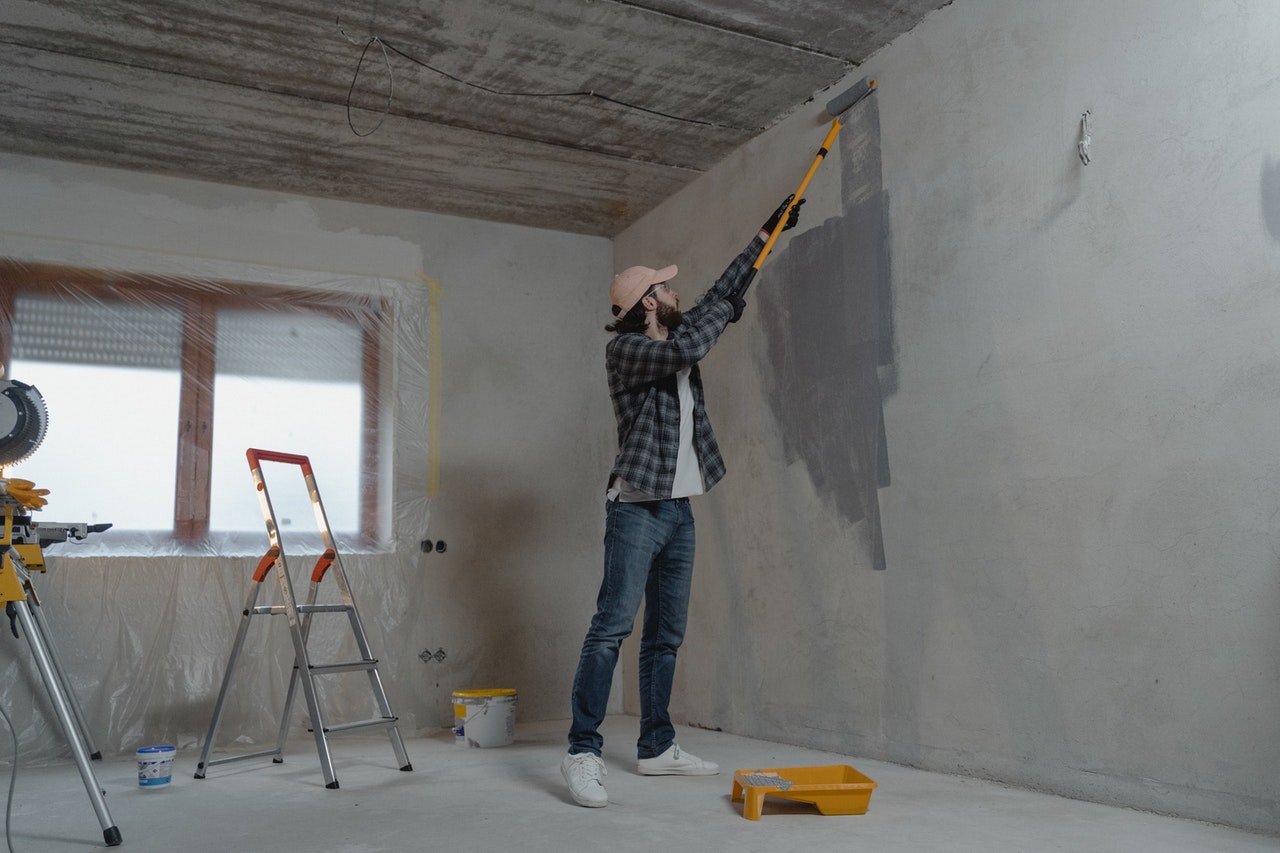
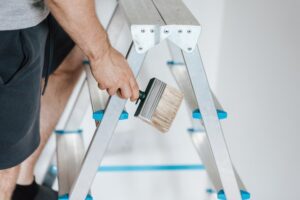 One of the most important qualities of a great professional painting company is that they provide clear estimates. This means that they should be able to give you an accurate quote for the job, without any hidden fees or unexpected costs. A good way to test this is to ask for a quote from multiple companies and compare their rates.
One of the most important qualities of a great professional painting company is that they provide clear estimates. This means that they should be able to give you an accurate quote for the job, without any hidden fees or unexpected costs. A good way to test this is to ask for a quote from multiple companies and compare their rates. Finally, a great professional painting company should be committed to quality. This means that they should use high-quality materials and workmanship, and stand behind their work. A good way to test this is to ask for a warranty or guarantee on the work and see what kind of coverage they offer.
Finally, a great professional painting company should be committed to quality. This means that they should use high-quality materials and workmanship, and stand behind their work. A good way to test this is to ask for a warranty or guarantee on the work and see what kind of coverage they offer.
 The first thing you should do, which many homeowners don’t know, is to check your city or county’s zoning rules. Many areas have strict regulations on how close you can build a pool to your property line. You might need a variance in some cases, which could add months to your timeline and thousands of dollars to your budget.
The first thing you should do, which many homeowners don’t know, is to check your city or county’s zoning rules. Many areas have strict regulations on how close you can build a pool to your property line. You might need a variance in some cases, which could add months to your timeline and thousands of dollars to your budget. Lastly, once you’ve chosen the perfect site and dug out the hole, it’s time to start filling it with water. But before you do, be sure to optimize the water circulation system. This will ensure that your pool stays clean and clear all summer long. When choosing a pump, filter, and other components for your pool’s circulation system, consult with a professional.
Lastly, once you’ve chosen the perfect site and dug out the hole, it’s time to start filling it with water. But before you do, be sure to optimize the water circulation system. This will ensure that your pool stays clean and clear all summer long. When choosing a pump, filter, and other components for your pool’s circulation system, consult with a professional.
 One of the most important aspects of tree maintenance is watering. Trees need a lot of water, especially when they are young. You should water your trees deeply and regularly during the growing season. If you live in an area with high temperatures, you may need to water your trees more frequently. Check with your local nursery or landscape company if you’re not sure how often to water your trees.
One of the most important aspects of tree maintenance is watering. Trees need a lot of water, especially when they are young. You should water your trees deeply and regularly during the growing season. If you live in an area with high temperatures, you may need to water your trees more frequently. Check with your local nursery or landscape company if you’re not sure how often to water your trees. One of the best times to fertilize your trees is in the fall. It is because the roots of trees are actively growing at this time so that they can use the nutrients in fertilizer more effectively. When fertilizing your trees, be sure to use a specifically formulated fertilizer for trees.
One of the best times to fertilize your trees is in the fall. It is because the roots of trees are actively growing at this time so that they can use the nutrients in fertilizer more effectively. When fertilizing your trees, be sure to use a specifically formulated fertilizer for trees.
 One of the main reasons wall art matters so much in interior design is that it provides color palette for a room. When you walk into a room, the first thing that you notice is the walls. If the walls are blank, they can look very plain and boring. But if they are covered in artwork, they can instantly brighten up the space and add some personality.
One of the main reasons wall art matters so much in interior design is that it provides color palette for a room. When you walk into a room, the first thing that you notice is the walls. If the walls are blank, they can look very plain and boring. But if they are covered in artwork, they can instantly brighten up the space and add some personality. Finally, wall art also adds a sense of texture and dimension to a room. If you have a blank wall, it can look very one-dimensional. But if you add some artwork, it will add depth and interest to the space. For instance, a painting with thick brushstrokes will add texture, while a piece of metal wall art will add dimension. This is important because it helps create a more dynamic and exciting space.
Finally, wall art also adds a sense of texture and dimension to a room. If you have a blank wall, it can look very one-dimensional. But if you add some artwork, it will add depth and interest to the space. For instance, a painting with thick brushstrokes will add texture, while a piece of metal wall art will add dimension. This is important because it helps create a more dynamic and exciting space.
 One of the benefits of making real estate investments in your child’s name is that it teaches a saving habit in children. By investing in property, you teach your children the importance of saving for the future. This will instill a sense of responsibility in them and help them develop good financial habits. In addition, this will also give them a head start in life as they will already have an asset to their name.
One of the benefits of making real estate investments in your child’s name is that it teaches a saving habit in children. By investing in property, you teach your children the importance of saving for the future. This will instill a sense of responsibility in them and help them develop good financial habits. In addition, this will also give them a head start in life as they will already have an asset to their name.
 Another thing to consider is how much space you have available. If you have a small front yard, you may not want a large gate that takes up a lot of space. On the other hand, if you have a larger property, you may get away with a bigger gate. Regardless of the size of your property, you’ll want to make sure that the gate doesn’t block any walkways or driveways.
Another thing to consider is how much space you have available. If you have a small front yard, you may not want a large gate that takes up a lot of space. On the other hand, if you have a larger property, you may get away with a bigger gate. Regardless of the size of your property, you’ll want to make sure that the gate doesn’t block any walkways or driveways. The color of your gate is also an important consideration. You’ll want to choose a color that compliments the exterior of your home. If you have a light-colored house, you may want a dark-colored gate to create a contrast. If you have a dark-colored place, you may want to choose a lighter-colored gate. You can also get creative and choose a color that complements your property’s landscaping.
The color of your gate is also an important consideration. You’ll want to choose a color that compliments the exterior of your home. If you have a light-colored house, you may want a dark-colored gate to create a contrast. If you have a dark-colored place, you may want to choose a lighter-colored gate. You can also get creative and choose a color that complements your property’s landscaping.
 The first step is to understand how your warehouse operates and what type of workflow you need. This will help you determine the most efficient layout for your space. You’ll need to consider what kind of products you store, how those products are stored, how those products are moved around the warehouse, whether you have any special storage requirements.
The first step is to understand how your warehouse operates and what type of workflow you need. This will help you determine the most efficient layout for your space. You’ll need to consider what kind of products you store, how those products are stored, how those products are moved around the warehouse, whether you have any special storage requirements.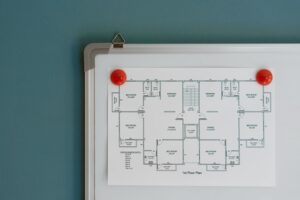 Another essential tip for designing a practical warehouse layout is ensuring you have the right warehouse management system (WMS) in place. A good WMS can help you keep track of your inventory, optimize your storage, and improve overall operations. If you don’t have a WMS, now is the time to invest in one.
Another essential tip for designing a practical warehouse layout is ensuring you have the right warehouse management system (WMS) in place. A good WMS can help you keep track of your inventory, optimize your storage, and improve overall operations. If you don’t have a WMS, now is the time to invest in one.
 One of the most affordable ways to improve your garage is to insulate the door. This will help keep your garage warmer in the winter and cooler in the summer. You can purchase special insulation kits at most home improvement stores. Just follow the instructions carefully so don’t damage the door. Another way to improve your garage door’s insulation is to install a weatherstrip seal. This will help create an airtight seal around the door, further enhancing its energy efficiency. You can purchase a weatherstrip seal at most hardware stores.
One of the most affordable ways to improve your garage is to insulate the door. This will help keep your garage warmer in the winter and cooler in the summer. You can purchase special insulation kits at most home improvement stores. Just follow the instructions carefully so don’t damage the door. Another way to improve your garage door’s insulation is to install a weatherstrip seal. This will help create an airtight seal around the door, further enhancing its energy efficiency. You can purchase a weatherstrip seal at most hardware stores. One of the best ways to give your garage a fresh new look is to apply epoxy over paint. It will help create a smooth, durable surface that is easy to clean and maintain. You can purchase epoxy kits at most home improvement stores.
One of the best ways to give your garage a fresh new look is to apply epoxy over paint. It will help create a smooth, durable surface that is easy to clean and maintain. You can purchase epoxy kits at most home improvement stores.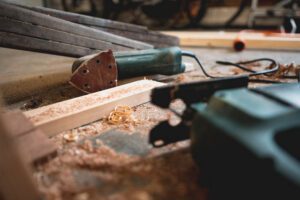 If you are looking for a way to increase your storage space, installing some ceiling storage is a great option. Installing ceiling storage is a great way to use otherwise unused space. It will also help keep your garage more organized. When installing ceiling storage, be sure to use heavy-duty hooks and brackets. It will help ensure that the storage system is sturdy and can support the weight.
If you are looking for a way to increase your storage space, installing some ceiling storage is a great option. Installing ceiling storage is a great way to use otherwise unused space. It will also help keep your garage more organized. When installing ceiling storage, be sure to use heavy-duty hooks and brackets. It will help ensure that the storage system is sturdy and can support the weight.
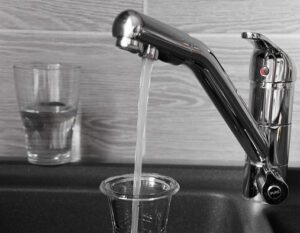 Install a water-saving showerhead if you’re looking for an easy way to save water and money. You can find these at most hardware stores, and they can save you a significant amount of water. Many older homes have showerheads that use up to five gallons of water per minute. Water-saving showerheads can reduce that amount by up to two gallons per minute. That means you’ll use less water and save money on your water bill.
Install a water-saving showerhead if you’re looking for an easy way to save water and money. You can find these at most hardware stores, and they can save you a significant amount of water. Many older homes have showerheads that use up to five gallons of water per minute. Water-saving showerheads can reduce that amount by up to two gallons per minute. That means you’ll use less water and save money on your water bill. Leaks can waste a lot of water, and they can also be costly to fix. But the sooner you set them, the better. A small drip from a faucet can waste up to 20 gallons of water per day. That’s over 700 gallons of water per month. Therefore, it’s a no-brainer move to go through your plumbing system, check for any leaks, and fix them immediately. If you find some leaks, you can fix them yourself or hire a professional. So again, if you leak, make sure to get it fixed as soon as possible.
Leaks can waste a lot of water, and they can also be costly to fix. But the sooner you set them, the better. A small drip from a faucet can waste up to 20 gallons of water per day. That’s over 700 gallons of water per month. Therefore, it’s a no-brainer move to go through your plumbing system, check for any leaks, and fix them immediately. If you find some leaks, you can fix them yourself or hire a professional. So again, if you leak, make sure to get it fixed as soon as possible.
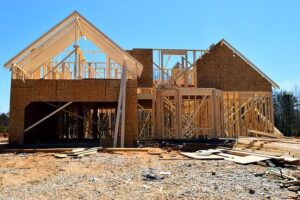 The first step to take when building a house is to have a detailed plan. This plan should include everything from the house’s layout to the materials you will use. Having a plan will help ensure that your build goes smoothly and that you do not run into any surprises. One of the common mistakes of homeowners is that they do not plan ahead, and this can often lead to problems later on.
The first step to take when building a house is to have a detailed plan. This plan should include everything from the house’s layout to the materials you will use. Having a plan will help ensure that your build goes smoothly and that you do not run into any surprises. One of the common mistakes of homeowners is that they do not plan ahead, and this can often lead to problems later on. The last important tip is to work with a reputable contractor. A good contractor will be able to help you with the planning process and will also be able to provide you with the best materials for your build. They will also be able to help you stay on budget and on schedule. Working with a reputable contractor is one of the best ways to ensure that your build goes smoothly.
The last important tip is to work with a reputable contractor. A good contractor will be able to help you with the planning process and will also be able to provide you with the best materials for your build. They will also be able to help you stay on budget and on schedule. Working with a reputable contractor is one of the best ways to ensure that your build goes smoothly.
 A games room can also be a great way to encourage family time. This is because it provides a common interest that everyone can enjoy. In addition, family time in the games room can be a lot of fun and provide memories that will last a lifetime. For example, you can play games together or watch movies while enjoying snacks.
A games room can also be a great way to encourage family time. This is because it provides a common interest that everyone can enjoy. In addition, family time in the games room can be a lot of fun and provide memories that will last a lifetime. For example, you can play games together or watch movies while enjoying snacks. Another great benefit of having a games room in your
Another great benefit of having a games room in your 
 One of the most important things to consider when looking at a neighborhood is safety. Make sure that the neighborhood is safe and has low crime rates. You don’t want to worry about your safety every time you leave your house. In addition, check to see what the neighborhood is like at night. You don’t want to be in a deserted neighborhood at night.
One of the most important things to consider when looking at a neighborhood is safety. Make sure that the neighborhood is safe and has low crime rates. You don’t want to worry about your safety every time you leave your house. In addition, check to see what the neighborhood is like at night. You don’t want to be in a deserted neighborhood at night. When looking at a neighborhood, pay attention to the aesthetics. Is the neighborhood pretty? Does it have green spaces? Are the homes in good condition?
When looking at a neighborhood, pay attention to the aesthetics. Is the neighborhood pretty? Does it have green spaces? Are the homes in good condition?
 Another thing to consider is the capacity of the toaster oven. How many slices of bread do you want to be able to toast at once? Some toaster ovens can only fit one or two slices, while others can fit six or more. If you have a large family, you’ll need a model with a larger capacity. Some toaster ovens come with convection baking capabilities, which means that the fan will circulate hot air around the food, resulting in faster and more even baking. If this is important to you, choose a model with this feature.
Another thing to consider is the capacity of the toaster oven. How many slices of bread do you want to be able to toast at once? Some toaster ovens can only fit one or two slices, while others can fit six or more. If you have a large family, you’ll need a model with a larger capacity. Some toaster ovens come with convection baking capabilities, which means that the fan will circulate hot air around the food, resulting in faster and more even baking. If this is important to you, choose a model with this feature.
 One of the easiest ways to make your home more environmentally friendly is to switch to LED lights. LED lights use less energy than traditional light bulbs and last longer, saving money in the long run. Conventional light bulbs use 60-100 watts of electricity, while LED light bulbs use only six and 12 watts. So not only will you be helping the environment, but you’ll also be saving money on your energy bill. Another great benefit of LED lights is that they don’t produce heat as traditional light bulbs do. It means that you can reduce your home’s cooling costs in the summer.
One of the easiest ways to make your home more environmentally friendly is to switch to LED lights. LED lights use less energy than traditional light bulbs and last longer, saving money in the long run. Conventional light bulbs use 60-100 watts of electricity, while LED light bulbs use only six and 12 watts. So not only will you be helping the environment, but you’ll also be saving money on your energy bill. Another great benefit of LED lights is that they don’t produce heat as traditional light bulbs do. It means that you can reduce your home’s cooling costs in the summer.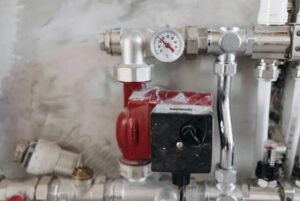 Finally, consider installing a water filtration system if you prefer filtering your well water instead of buying drinking water every single time. A water filtration system will remove contaminants from your well water and make it safe to drink. Filtered well water is healthier for you, but it’s also better for the environment. Installing a water filtration system is a great way to make your home more sustainable.
Finally, consider installing a water filtration system if you prefer filtering your well water instead of buying drinking water every single time. A water filtration system will remove contaminants from your well water and make it safe to drink. Filtered well water is healthier for you, but it’s also better for the environment. Installing a water filtration system is a great way to make your home more sustainable.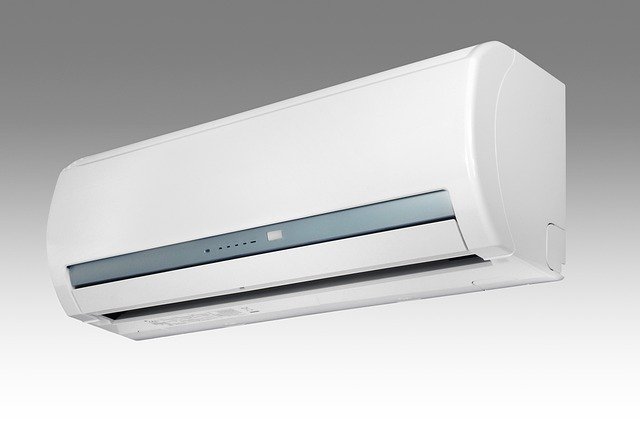
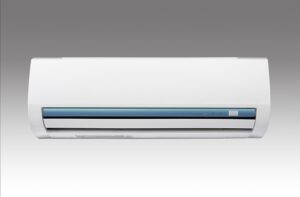 One of the best ways to keep your air conditioner running smoothly is to have it checked regularly by a professional. AC technicians can identify and fix any small problems before they turn into bigger issues. They can also help you keep your system maintained adequately to run all season optimally long. Many homeowners choose to have a maintenance plan with their AC technicians.
One of the best ways to keep your air conditioner running smoothly is to have it checked regularly by a professional. AC technicians can identify and fix any small problems before they turn into bigger issues. They can also help you keep your system maintained adequately to run all season optimally long. Many homeowners choose to have a maintenance plan with their AC technicians.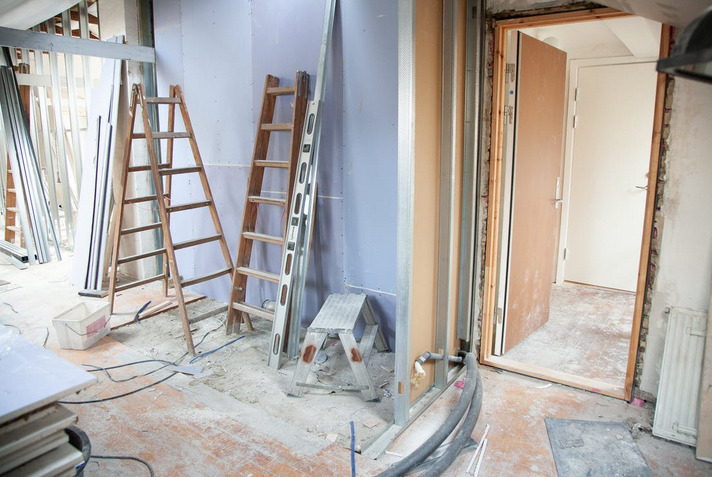
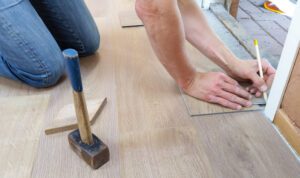 The first step in renovating your home is planning and designing the project. It includes deciding what changes you want to make and creating a budget. Be sure to factor in all associated costs, including materials, labor, and permits. This is important as it will help you stay on track financially and avoid any surprises down the road. Once you have a plan in place, it’s time to start shopping for materials. When selecting materials, choose ones that will last and are within your budget. Try to avoid using cheap materials, as they often cost more in the long run.
The first step in renovating your home is planning and designing the project. It includes deciding what changes you want to make and creating a budget. Be sure to factor in all associated costs, including materials, labor, and permits. This is important as it will help you stay on track financially and avoid any surprises down the road. Once you have a plan in place, it’s time to start shopping for materials. When selecting materials, choose ones that will last and are within your budget. Try to avoid using cheap materials, as they often cost more in the long run.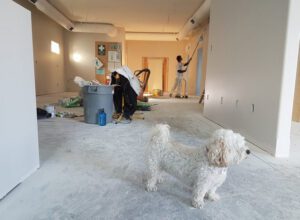 One of the most challenging parts of
One of the most challenging parts of 
 One of the most important things to look for when choosing an assisted living facility is its level of cleanliness. You’ll want to ensure that the building is well-maintained and that the staff keeps it clean. In addition, take a closer look at the design details of the building. Is it attractive and welcoming? Or does it look like a hospital or nursing home?
One of the most important things to look for when choosing an assisted living facility is its level of cleanliness. You’ll want to ensure that the building is well-maintained and that the staff keeps it clean. In addition, take a closer look at the design details of the building. Is it attractive and welcoming? Or does it look like a hospital or nursing home?
 Another costly mistake you can make when buying a house is not shopping around for the best interest rate. If you accept the first interest rate offered, you could be paying more for your home than you need to.
Another costly mistake you can make when buying a house is not shopping around for the best interest rate. If you accept the first interest rate offered, you could be paying more for your home than you need to.
 Before you shop for home appliances, you first need to determine your needs. What type of appliance do you need? What size do you need? And what features are important to you? Once you have a good idea of what you’re looking for, it will be easier to find the right appliance. Also, think about the size that would be best for your needs. If you have a small kitchen, you’ll want to get a small appliance. But if you have a large kitchen, you’ll have more options to choose from.
Before you shop for home appliances, you first need to determine your needs. What type of appliance do you need? What size do you need? And what features are important to you? Once you have a good idea of what you’re looking for, it will be easier to find the right appliance. Also, think about the size that would be best for your needs. If you have a small kitchen, you’ll want to get a small appliance. But if you have a large kitchen, you’ll have more options to choose from.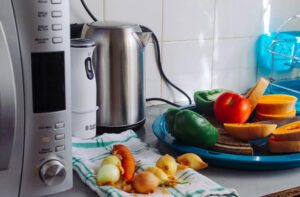 When you buy a new appliance, be sure to get a warranty. This will protect you in case the device breaks down or stops working. Most warranties last for one or two years, so read the terms and conditions carefully. If you’re buying a used appliance, ask the seller for proof of the warranty. And if there is no warranty, consider purchasing a warranty plan. It will provide you with peace of mind and ensure that you’re covered if something goes wrong.
When you buy a new appliance, be sure to get a warranty. This will protect you in case the device breaks down or stops working. Most warranties last for one or two years, so read the terms and conditions carefully. If you’re buying a used appliance, ask the seller for proof of the warranty. And if there is no warranty, consider purchasing a warranty plan. It will provide you with peace of mind and ensure that you’re covered if something goes wrong.
 Comfortable bedding is the key to a good night’s sleep. If you’re constantly waking up in the middle of the night because your sheets are itchy or your mattress is lumpy, it’s time for an upgrade. Invest in some high-quality sheets and a comfortable mattress, and you’ll be sure to notice a difference in your sleep quality.
Comfortable bedding is the key to a good night’s sleep. If you’re constantly waking up in the middle of the night because your sheets are itchy or your mattress is lumpy, it’s time for an upgrade. Invest in some high-quality sheets and a comfortable mattress, and you’ll be sure to notice a difference in your sleep quality. The last weapon on our list used for sleepless nights is melatonin. Melatonin is a hormone that helps to regulate sleep and wakefulness. Oftentimes, people with insomnia have trouble producing enough melatonin on their own. This is where supplements come in.
The last weapon on our list used for sleepless nights is melatonin. Melatonin is a hormone that helps to regulate sleep and wakefulness. Oftentimes, people with insomnia have trouble producing enough melatonin on their own. This is where supplements come in.
 Formwork is a temporary mold used to shape
Formwork is a temporary mold used to shape 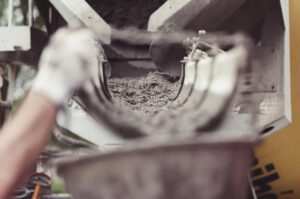 There are two main types of formwork available: traditional formwork and prefabricated formwork. Traditional formwork is made out of wood, metal, or plastic. Prefabricated formwork is made out of modular panels that can be assembled on site. Each type has its advantages and disadvantages. Traditional formwork is generally more versatile and can be custom-made to meet the specific needs of your project. However, it is also more expensive and time-consuming to set up.
There are two main types of formwork available: traditional formwork and prefabricated formwork. Traditional formwork is made out of wood, metal, or plastic. Prefabricated formwork is made out of modular panels that can be assembled on site. Each type has its advantages and disadvantages. Traditional formwork is generally more versatile and can be custom-made to meet the specific needs of your project. However, it is also more expensive and time-consuming to set up.
 If you live in a low-lying area, are near water, or experience frequent heavy rains, you know that flooding is always possible. And while your homeowner’s insurance policy may cover some flood damage, it likely won’t cover everything. That’s where contractors’ liability insurance comes in. Contractors’ liability insurance can help protect you from the financial devastation that a flood can cause. Contractors’ liability insurance can help cover the cost of repairing or replacing damaged equipment, property, or vehicles. It can also help cover the cost of lost wages if you cannot work because of flood damage.
If you live in a low-lying area, are near water, or experience frequent heavy rains, you know that flooding is always possible. And while your homeowner’s insurance policy may cover some flood damage, it likely won’t cover everything. That’s where contractors’ liability insurance comes in. Contractors’ liability insurance can help protect you from the financial devastation that a flood can cause. Contractors’ liability insurance can help cover the cost of repairing or replacing damaged equipment, property, or vehicles. It can also help cover the cost of lost wages if you cannot work because of flood damage.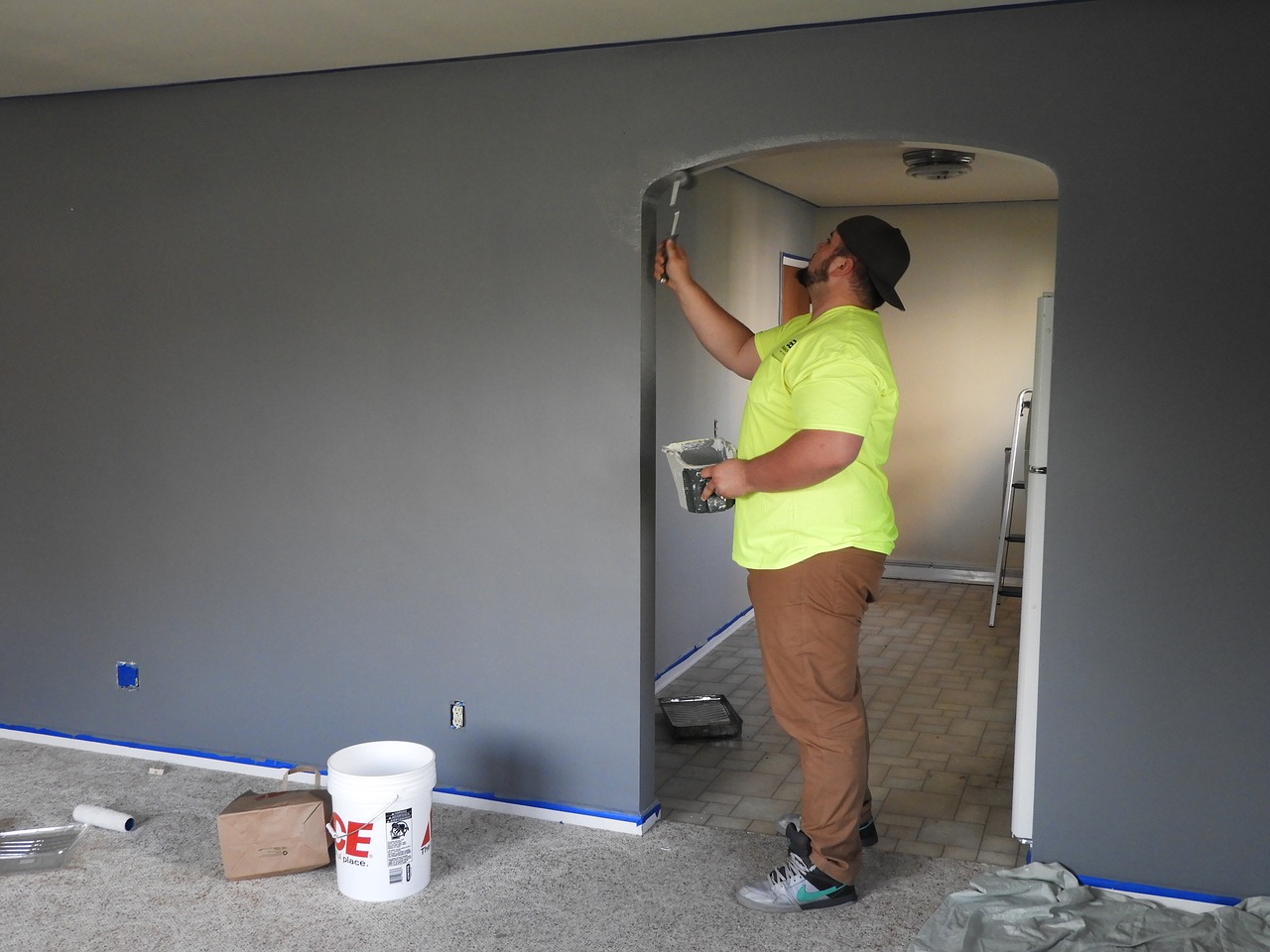
 The first step to renovating your home on a budget is planning and setting a budget. It may seem like a no-brainer, but you’d be surprised how many people start a renovation without knowing how much it will cost. Once you have an idea of what you want to do and how much it will cost, you can start to look for ways to save. When it comes to planning, it’s essential to be realistic about what you can and can’t do.
The first step to renovating your home on a budget is planning and setting a budget. It may seem like a no-brainer, but you’d be surprised how many people start a renovation without knowing how much it will cost. Once you have an idea of what you want to do and how much it will cost, you can start to look for ways to save. When it comes to planning, it’s essential to be realistic about what you can and can’t do.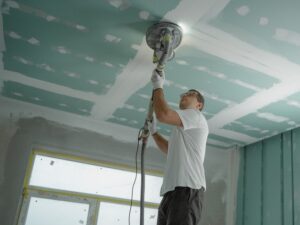 When renovating your home, it’s crucial to think about long-term value. Just because you’re on a budget doesn’t mean you should skimp on quality. It’s worth spending a little extra now when it comes to things like appliances and fixtures, so you don’t have to replace them down the road. And if you’re planning on selling your home in the future, be sure to do some research and find out what home buyers are looking for. By making smart choices now, you can increase the value of your home down the road.
When renovating your home, it’s crucial to think about long-term value. Just because you’re on a budget doesn’t mean you should skimp on quality. It’s worth spending a little extra now when it comes to things like appliances and fixtures, so you don’t have to replace them down the road. And if you’re planning on selling your home in the future, be sure to do some research and find out what home buyers are looking for. By making smart choices now, you can increase the value of your home down the road.
 The first step to transforming your
The first step to transforming your  Another easy way to transform your living room is to change your lighting. Try adding some new lamps or replacing your old light fixtures. You can also experiment with different types of light bulbs to see what works best in your space. Lighting is very important because it can help to set the mood in your living room. Homeowners first determine what type of mood they would like to create and then find lighting that will complement it. This is to make things easier and save time at the same time.
Another easy way to transform your living room is to change your lighting. Try adding some new lamps or replacing your old light fixtures. You can also experiment with different types of light bulbs to see what works best in your space. Lighting is very important because it can help to set the mood in your living room. Homeowners first determine what type of mood they would like to create and then find lighting that will complement it. This is to make things easier and save time at the same time.
 One appliance that can save you a lot of time and energy is a robotic vacuum cleaner. These nifty little devices are becoming more and more popular for a good reason! They can automatically clean your floors while you attend to other tasks, so you don’t have to waste time doing it yourself. A dishwasher is another appliance that can save you time and energy. Rather than washing all of your dishes by hand, you can load them into the dishwasher and let it do its job.
One appliance that can save you a lot of time and energy is a robotic vacuum cleaner. These nifty little devices are becoming more and more popular for a good reason! They can automatically clean your floors while you attend to other tasks, so you don’t have to waste time doing it yourself. A dishwasher is another appliance that can save you time and energy. Rather than washing all of your dishes by hand, you can load them into the dishwasher and let it do its job. While most appliances make your life easier, some are there to keep you safe and secure. For example, many homes now have security systems like motion sensors and cameras. These can deter burglars and help to keep your family safe. Some appliances can help protect your home from fires, such as smoke detectors and fire extinguishers. So there you have it, four top home appliances can simplify your daily life at home.…
While most appliances make your life easier, some are there to keep you safe and secure. For example, many homes now have security systems like motion sensors and cameras. These can deter burglars and help to keep your family safe. Some appliances can help protect your home from fires, such as smoke detectors and fire extinguishers. So there you have it, four top home appliances can simplify your daily life at home.…
 The best way to remove any stain is to read the label and find out how to clean it. Different types of furniture require other cleaning methods, so you need to make sure that you are using the right one. For example, if you have a leather couch, you should never use an all-purpose cleaner on it – it will damage the leather. Instead, it would help if you used a cleaner specifically designed for leather furniture. If you’re not sure how to clean a particular type of stain, there are plenty of online resources that can help. Just do a quick Google search, and you’ll find plenty of articles and videos on how to remove various types of stains from furniture.
The best way to remove any stain is to read the label and find out how to clean it. Different types of furniture require other cleaning methods, so you need to make sure that you are using the right one. For example, if you have a leather couch, you should never use an all-purpose cleaner on it – it will damage the leather. Instead, it would help if you used a cleaner specifically designed for leather furniture. If you’re not sure how to clean a particular type of stain, there are plenty of online resources that can help. Just do a quick Google search, and you’ll find plenty of articles and videos on how to remove various types of stains from furniture.
 When it comes to adjustable beds, there are a few different features that you may want to consider. One of the essential features is adjusting the head and foot of the bed. This feature allows you to find a comfortable position for sleeping or lounging. Additionally, many adjustable beds come with built-in massage features. These can be great for relieving stress and tension. Some adjustable beds also have storage options, such as drawers or shelves. It can be helpful for those who want to keep their bedroom tidy. Adjustable beds are an excellent option for looking for a comfortable and customizable sleeping experience.
When it comes to adjustable beds, there are a few different features that you may want to consider. One of the essential features is adjusting the head and foot of the bed. This feature allows you to find a comfortable position for sleeping or lounging. Additionally, many adjustable beds come with built-in massage features. These can be great for relieving stress and tension. Some adjustable beds also have storage options, such as drawers or shelves. It can be helpful for those who want to keep their bedroom tidy. Adjustable beds are an excellent option for looking for a comfortable and customizable sleeping experience.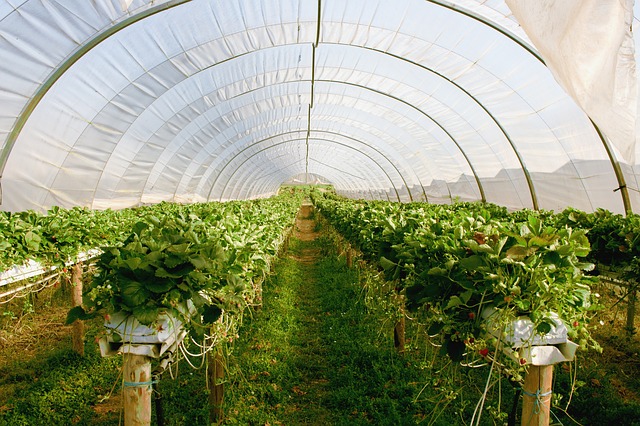
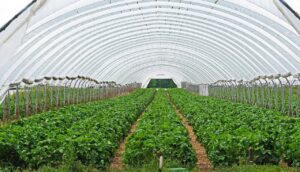 One of the main benefits of owning a greenhouse is creating an ideal growing environment for your plants. By controlling the temperature, humidity, and light levels, you can ensure that your plants will thrive. This is especially important if you live in a climate where the weather is not conducive to growing certain fruits and vegetables. A greenhouse will allow you to grow crops all year round, regardless of outside weather conditions.
One of the main benefits of owning a greenhouse is creating an ideal growing environment for your plants. By controlling the temperature, humidity, and light levels, you can ensure that your plants will thrive. This is especially important if you live in a climate where the weather is not conducive to growing certain fruits and vegetables. A greenhouse will allow you to grow crops all year round, regardless of outside weather conditions.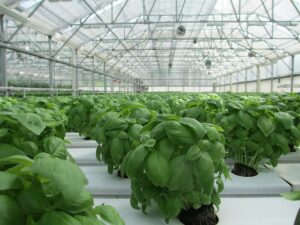 There are many different styles of greenhouses to choose from. You can go with a traditional style, or something more modern. If you have the space, you might want to consider building a larger greenhouse. This will give you plenty of room to grow your plants and vegetables. You can always build a smaller greenhouse if you’re on a tight budget. The material you use to build your greenhouse will also affect the overall style. If you’re thinking of building a greenhouse, there are many reasons to do so.
There are many different styles of greenhouses to choose from. You can go with a traditional style, or something more modern. If you have the space, you might want to consider building a larger greenhouse. This will give you plenty of room to grow your plants and vegetables. You can always build a smaller greenhouse if you’re on a tight budget. The material you use to build your greenhouse will also affect the overall style. If you’re thinking of building a greenhouse, there are many reasons to do so.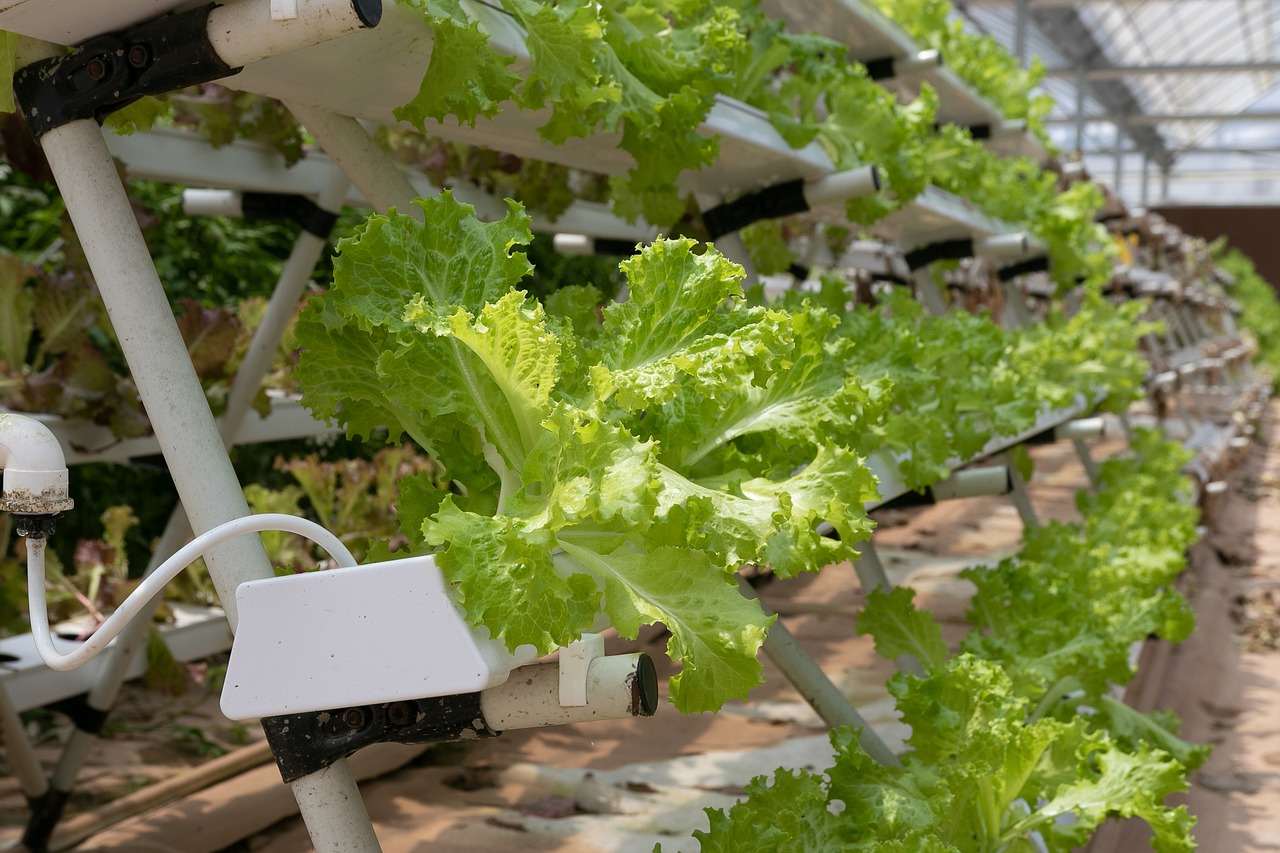
 One of the most important aspects of a successful vertical hydroponic system is having quality water with the correct pH. You’ll want to make sure to test your water’s pH and adjust it accordingly. Most plants do well in a pH range between six and seven, but you can check the specific needs of your plants to be sure. You can test your water’s pH with a simple at-home test kit. Another important aspect of quality water is making sure it is free of harmful chemicals and pollutants.
One of the most important aspects of a successful vertical hydroponic system is having quality water with the correct pH. You’ll want to make sure to test your water’s pH and adjust it accordingly. Most plants do well in a pH range between six and seven, but you can check the specific needs of your plants to be sure. You can test your water’s pH with a simple at-home test kit. Another important aspect of quality water is making sure it is free of harmful chemicals and pollutants. Another critical aspect of a successful vertical hydroponic system is using the right nutrient solution for your plants. Different plants require different nutrients, so it’s important to know what type of nutrients your plants need. You can purchase pre-made nutrient solutions or make your own. If you’re making your own, be sure to research the specific needs of your plants.
Another critical aspect of a successful vertical hydroponic system is using the right nutrient solution for your plants. Different plants require different nutrients, so it’s important to know what type of nutrients your plants need. You can purchase pre-made nutrient solutions or make your own. If you’re making your own, be sure to research the specific needs of your plants.
 Once you’ve got the basics in place, it’s time to start adding some personal touches. This could include things like vintage posters, quilts, or even an antique armoire. The key is to mix and match old and new pieces to create a one-of-a-kind look that’s all your own.
Once you’ve got the basics in place, it’s time to start adding some personal touches. This could include things like vintage posters, quilts, or even an antique armoire. The key is to mix and match old and new pieces to create a one-of-a-kind look that’s all your own.


 The first thing that you need to do if you want to attain your life dreams is to know yourself. You need to understand where your passion is. Do not be distracted by the popularity of those big names in the music industry and decide that you want to become like them even if your passion is not in music. Once you are convinced that you were born to be a musician, then you need to go for it with all your mind.
The first thing that you need to do if you want to attain your life dreams is to know yourself. You need to understand where your passion is. Do not be distracted by the popularity of those big names in the music industry and decide that you want to become like them even if your passion is not in music. Once you are convinced that you were born to be a musician, then you need to go for it with all your mind. You can also start learning music online. The internet has made easy for people to achieve their dreams without having to struggle too much. You also need to grasp this opportunity and decide your destiny as early as possible. The good thing with online music education is that it is cheap meaning that anyone can easily afford. Also, it gives you a chance to learn during the time that you think that is the most convenient for you. You can also get a lot of useful tutorials that help achieve your dreams. In whatever that you do, always remember that practice and determination will lead to absolute success.…
You can also start learning music online. The internet has made easy for people to achieve their dreams without having to struggle too much. You also need to grasp this opportunity and decide your destiny as early as possible. The good thing with online music education is that it is cheap meaning that anyone can easily afford. Also, it gives you a chance to learn during the time that you think that is the most convenient for you. You can also get a lot of useful tutorials that help achieve your dreams. In whatever that you do, always remember that practice and determination will lead to absolute success.…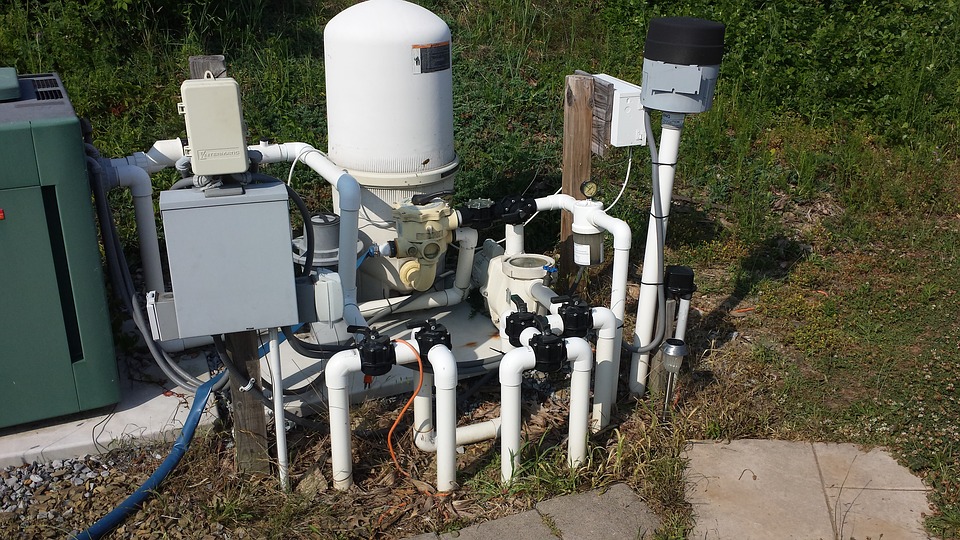
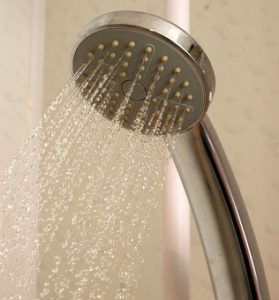
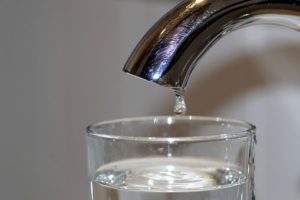 For those who will settle on water filtration, they should know that these filters need regular maintenance regarding replacement of filters. The good thing is that some have indicators which will alert one that it is time for a change. This calls for one being familiar with their system so that they know when to carry out maintenance.…
For those who will settle on water filtration, they should know that these filters need regular maintenance regarding replacement of filters. The good thing is that some have indicators which will alert one that it is time for a change. This calls for one being familiar with their system so that they know when to carry out maintenance.…


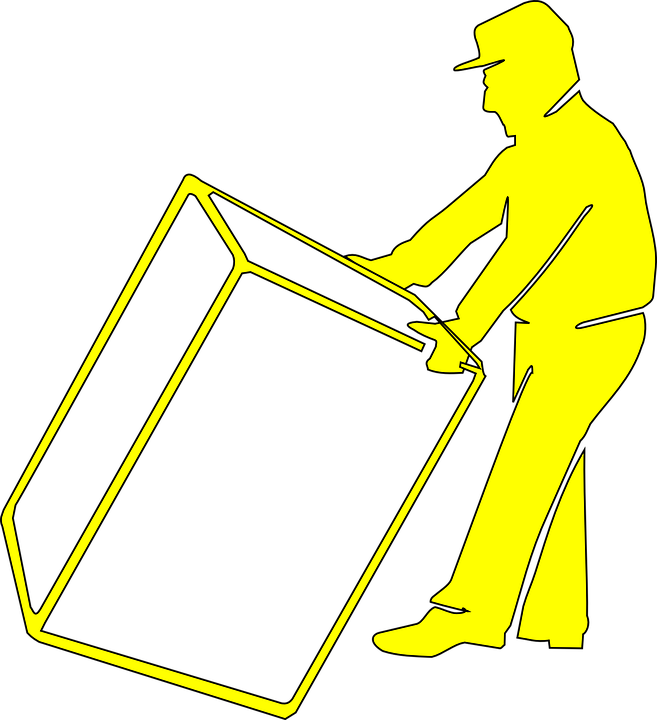
 This is one of the common relocation services. When you get a work transfer, you might be forced to relocate to another place. Relocate on your own can be a daunting task especially when you do not have good transportation means. The residential relocation makes your work easier and effective by providing you with professional services. They will be responsible for packing, loading, moving and unloading any of your possessions that you will be moving with. It is important to make sure that you a company that is insured so that the security of your luggage is guaranteed.
This is one of the common relocation services. When you get a work transfer, you might be forced to relocate to another place. Relocate on your own can be a daunting task especially when you do not have good transportation means. The residential relocation makes your work easier and effective by providing you with professional services. They will be responsible for packing, loading, moving and unloading any of your possessions that you will be moving with. It is important to make sure that you a company that is insured so that the security of your luggage is guaranteed.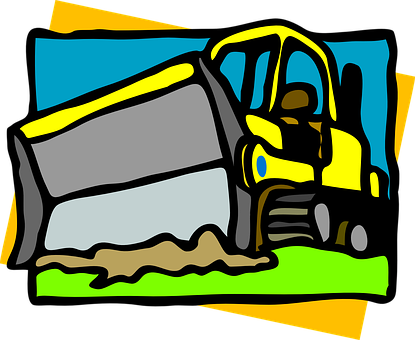 When you go out there to hire a relocation company, you need to make sure that they offer door to services. Although almost all relocation companies offer door to door services, there are some that might tend to exploit you. Relocation services need to offer you an opportunity to have a stress free services. They need to provide you with unloading and packing services and also give your cargo the protection that they deserve.…
When you go out there to hire a relocation company, you need to make sure that they offer door to services. Although almost all relocation companies offer door to door services, there are some that might tend to exploit you. Relocation services need to offer you an opportunity to have a stress free services. They need to provide you with unloading and packing services and also give your cargo the protection that they deserve.…
 There are several costs that you will save as a business by engaging the services of virtual assistants. These include rent for office space, health insurance covers, payroll taxes, staff welfare costs like foods and water, and equipment acquisition and maintenance costs. This does not mean you will enjoy less of the services as you would by having employees in your premises. You will also cut costs on pay to staff while on vacations, annual leave, sick leaves, maternity and paternity leaves, and other leaves.
There are several costs that you will save as a business by engaging the services of virtual assistants. These include rent for office space, health insurance covers, payroll taxes, staff welfare costs like foods and water, and equipment acquisition and maintenance costs. This does not mean you will enjoy less of the services as you would by having employees in your premises. You will also cut costs on pay to staff while on vacations, annual leave, sick leaves, maternity and paternity leaves, and other leaves. Most staff within your premises will have some idle time-whether necessary or unnecessary. They will have tea breaks, lunch breaks, time to refresh and to visit washrooms and others breaks which are all necessary though add no value to the business. The unnecessary idle times include time spent surfing the Internet, time spent gossiping, doing a private thing like applying for jobs during working hours and spending more than the required time on a task. Virtual assistants work on specific assignments and within strict timelines thus idle time is greatly minimized.
Most staff within your premises will have some idle time-whether necessary or unnecessary. They will have tea breaks, lunch breaks, time to refresh and to visit washrooms and others breaks which are all necessary though add no value to the business. The unnecessary idle times include time spent surfing the Internet, time spent gossiping, doing a private thing like applying for jobs during working hours and spending more than the required time on a task. Virtual assistants work on specific assignments and within strict timelines thus idle time is greatly minimized.




